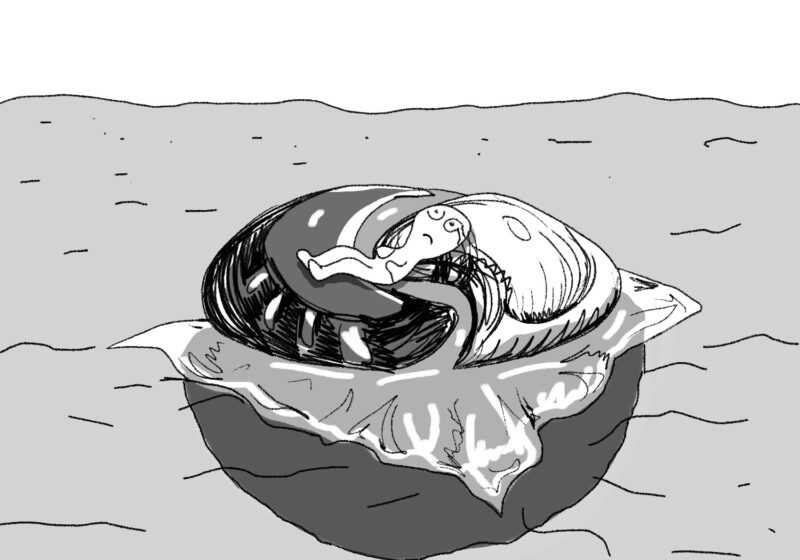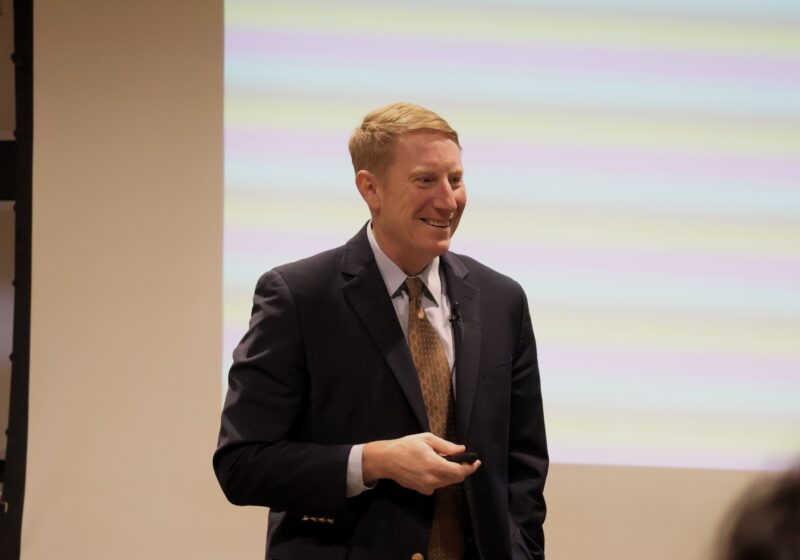Former Dallas Cowboys linebacker Jeff Rohrer, who played in the league in the 1980s, became the first former NFL player to openly enter into a gay marriage in mid November.
This would seem like a somewhat substantial story for a league which “strives to be a model of diversity and inclusion.” Yet the story received almost no coverage on ESPN nor the league-owned NFL Network.
The NFL has a strange relationship with homosexual athletes. In 2014, defensive end Michael Sam became the first openly gay player to be drafted into the league, and the media took notice. He was picked by the Rams in the last round, and was cut before playing in any game. He briefly joined the practice squad of the Dallas Cowboys and later had a stint with the Montreal Alouettes of the CFL, but was quickly out of football.
Yet, there were reports in 2016 that the league knew teams were unlikely to draft Sam, and they made a deal with the Rams such that Sam would be drafted. In exchange, the Rams would not be featured on HBO’s Hard Knocks. This story was denied, but soon after the Rams cut Sam, HBO announced that the team would be featured on Hard Knocks.
Essentially, the NFL saw Michael Sam’s employment as a public relations stunt. But if that’s true, then why did they not play up the Rohrer story?
In October, the Boston Globe published a and multi-part article and podcast about former Patriots’ tight end Aaron Hernandez, who is known for allegations of murder and his suicide while in jail.
In the series, former teammates of Hernandez discuss their time with him. Former Patriots receiver Brandon Lloyd said fellow receiver Wes Welker told him that Hernandez was “going to talk about gay sex. Just do your best to ignore it. Even walk away.”
I found it interesting that the response to Hernandez was to ignore him. It seems clear that the culture of the NFL is very macho, and it seems that players did not know how to respond to Hernandez.
In 2013, the Miami Dolphins suspended offensive lineman Richie Incognito for his leading role in systematic harassment of fellow offensive lineman Jonathan Martin. Martin was abused in a variety of ways, including repeatedly being called slurs relating to homosexuality even though he was not believed to be gay.
The Richie Incognito scandal was just another example of an NFL team having issues due to its macho culture. After Incognito was suspended and missed an entire season, he played an additional three years in the league for the Bills. Joe Philbin, who was the head coach of the Dolphins at the time, was recently elevated to interim head coach of the Packers after losing his old job.
On the other end, Martin remained in the league for just one year, and last year he was arrested for making criminal threats, including the social media post “When you’re a bully victim & a coward, your options are suicide, or revenge.”
Philbin and Incognito found second chances in the league, while Jonathan Martin did not. Aaron Hernandez was ignored. Michael Sam had almost no success in the NFL, and the league might have used him in a public relations stunt. Unlike the staged milestone of Michael Sam, Jeff Rohrer became the first former NFL player to enter a gay marriage, and the media didn’t care.
In the past week, another issue relating to the league’s sliding moral scales and culture of strongmen came to the forefront. Linebacker Reuben Foster was signed by the Redskins after being cut by the 49ers for a domestic violence arrest. Later, Chiefs running back Kareem Hunt was cut when a video was released showing him kicking a woman in February, though it is unclear what the Chiefs and the league knew and when. Needless to say, the league also has a domestic violence problem.
I understand that several former NFL players other than Rohrer have come out as gay, and that Rohrer was not a very well-known player, so it shouldn’t be too surprising that the story didn’t gain too much traction.
But when it comes to players who are gay or are mistreated due to a perception of being homosexual, the NFL claims to support its diversity, but has recently fallen short of actually doing anything to change the league’s culture to be more inclusive.



